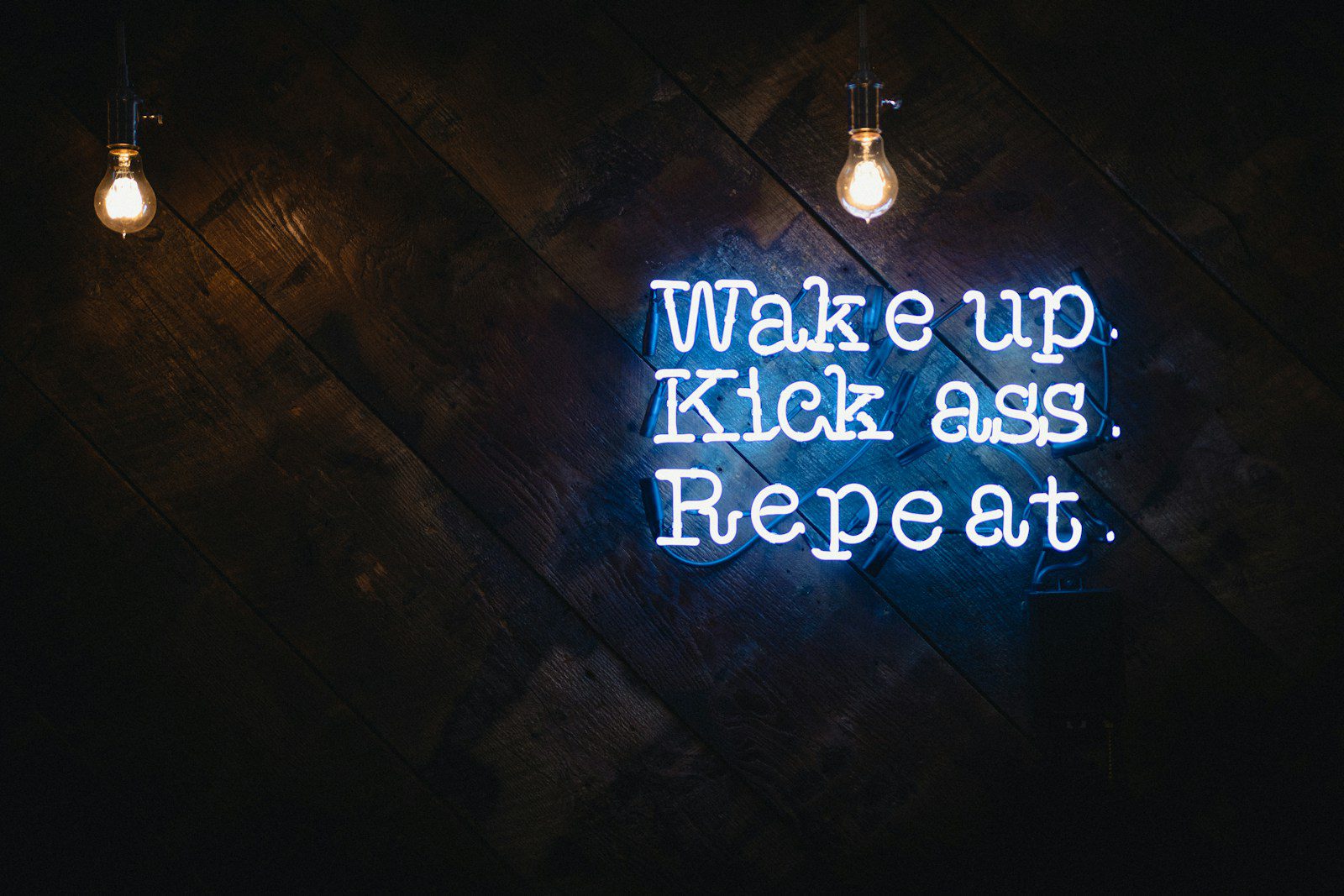ADHDChristmasCoaching BlogCoachingSetting goals can be a tough challenge, especially for professionals with ADHD. This article aims to explore effective goal-setting strategies tailored for ADHD individuals, helping them overcome obstacles and achieve success in their careers. By understanding the unique challenges faced by ADHD professionals and applying practical techniques, individuals can unlock their potential and improve their work performance.
Key Takeaways
- ADHD can affect how well someone performs at work, making goal-setting crucial.
- Breaking big tasks into smaller steps can make them easier to handle.
- Using technology can help keep track of goals and progress.
- Staying motivated and finding support from others can help overcome challenges.
- Regularly checking and adjusting goals is important for continued success.
Understanding ADHD in the Professional World

The Impact of ADHD on Work Performance
ADHD can significantly affect how individuals perform at work. Many people with ADHD struggle with focus and organisation, which can lead to challenges in completing tasks efficiently. Research shows that those with ADHD are often more entrepreneurial, with a 60-80% higher chance of wanting to start their own business. This unique perspective can be a strength in the workplace, but it also requires understanding and support from colleagues and employers.
Common Challenges Faced by ADHD Professionals
ADHD professionals often encounter several hurdles, including:
- Difficulty concentrating on tasks
- Challenges in managing time effectively
- Struggles with organisation and planning
These challenges can impact job performance, making it essential for workplaces to create supportive environments. A recent study found that over 12% of legal professionals have ADHD, highlighting the need for awareness in various fields.
The Importance of Goal-Setting for ADHD Individuals
Setting clear goals is crucial for individuals with ADHD. Effective goal-setting can help improve focus and productivity, allowing ADHD professionals to channel their energy into achieving specific outcomes. By breaking down larger tasks into smaller, manageable steps, they can navigate their work more effectively.
Goal-setting is not just about achieving tasks; it’s about creating a roadmap for success.
In summary, understanding ADHD in the workplace is vital for fostering an inclusive environment where individuals can thrive. By recognising the unique strengths and challenges of ADHD professionals, organisations can better support their teams and enhance overall performance.
The Science Behind Effective Goal-Setting

How Goal-Setting Improves Focus and Productivity
Setting clear goals can significantly enhance focus and productivity, especially for individuals with ADHD. Research shows that specific, measurable goals help in breaking down tasks into smaller, manageable steps. This approach not only clarifies what needs to be done but also makes it easier to track progress.
Psychological Principles of Goal-Setting
Understanding the psychology behind goal-setting is crucial. For those with ADHD, the connection between intention and action can often be weak. This disconnection can lead to difficulties in following through with tasks. By using structured goal-setting techniques, individuals can bridge this gap and improve their ability to act on their intentions.
Tailoring Goals to Suit ADHD Needs
It’s important to tailor goals to fit the unique needs of ADHD professionals. Here are some strategies:
- Set short-term goals that provide immediate rewards.
- Break larger tasks into smaller, achievable steps.
- Regularly review and adjust goals to keep them relevant.
Tailoring goals to individual needs can lead to better outcomes and increased motivation.
| Goal Type | Description | Example |
|---|---|---|
| Short-term Goals | Goals that can be achieved quickly | Completing a daily task |
| Long-term Goals | Goals that take time to achieve | Finishing a project |
| SMART Goals | Specific, Measurable, Achievable, Relevant, Time-bound | Learning a new skill |
By understanding these principles and applying them effectively, ADHD professionals can enhance their goal-setting strategies and achieve greater success in their careers.
Practical Strategies for Setting Achievable Goals
Breaking Down Large Tasks into Manageable Steps
When faced with big projects, it can be overwhelming. Breaking tasks into smaller parts makes them easier to handle. Here are some steps to follow:
- Identify the main goal.
- Divide it into smaller tasks.
- Set deadlines for each task.
- Focus on completing one task at a time.
Utilising Tools and Technology for Goal Management
Using tools can help keep you organised. Consider these options:
- Task management apps like Todoist or Trello.
- Calendar reminders for deadlines.
- Note-taking apps to jot down ideas.
Setting Realistic and Attainable Objectives
It’s important to set goals that you can actually reach. Instead of aiming for perfection, focus on doing tasks well enough. This mindset shift can lead to better outcomes. Here are some tips:
- Set specific and clear goals.
- Make sure your goals are measurable.
- Adjust your goals based on your progress.
Remember, achieving personal goals with ADHD starts with identifying your strengths and controlling your emotions.
By following these strategies, ADHD professionals can create a clear path to success and stay motivated throughout their journey.
Overcoming Obstacles in Goal Achievement
Dealing with Procrastination and Distractions
Procrastination can be a major hurdle for many ADHD professionals. To tackle this, consider the following strategies:
- Recognise emotional barriers that may be causing delays.
- Break tasks into smaller, more manageable steps to avoid feeling overwhelmed.
- Set specific, achievable goals to maintain focus.
Building Resilience and Staying Motivated
Staying motivated can be tough, especially when faced with setbacks. Here are some tips to help build resilience:
- Create a support system of friends, family, or colleagues who understand your challenges.
- Celebrate small wins to keep your spirits high.
- Learn from failures instead of letting them discourage you.
Seeking Support and Accountability
Having someone to hold you accountable can make a big difference. Consider these options:
- Join a group of like-minded individuals who share similar goals.
- Work with a coach or mentor who can provide guidance and encouragement.
- Use technology, like apps, to track your progress and remind you of your goals.
Remember, ADHD paralysis is real, but with the right strategies, you can overcome it and achieve your goals.
By understanding and addressing these obstacles, ADHD professionals can enhance their chances of success in their goal-setting journey.
Maintaining Progress and Adapting Goals

Regularly Reviewing and Adjusting Goals
To keep moving forward, it’s important to regularly check in on your goals. This helps you see what’s working and what isn’t. Adjusting your goals can make them more achievable. Here are some tips:
- Set a specific time each week to review your goals.
- Ask yourself if your goals still fit your current situation.
- Be open to changing your goals if needed.
Celebrating Small Wins and Milestones
Recognising your achievements, no matter how small, can boost your motivation. Celebrating these wins helps you stay positive. Consider:
- Keeping a journal of your achievements.
- Sharing your successes with friends or family.
- Treating yourself when you reach a milestone.
Learning from Setbacks and Failures
Setbacks are a part of life, especially for ADHD professionals. Instead of feeling discouraged, use these moments to learn. Understanding what went wrong can help you improve. Here’s how:
- Reflect on what caused the setback.
- Identify what you can do differently next time.
- Remember that failure is a step towards success.
Staying flexible with your goals is key. It allows you to adapt to changes and keep moving forward, even when things get tough.
By maintaining progress and adapting your goals, you can create a path that works for you. This approach not only helps in achieving your objectives but also supports your overall well-being. Incorporating effective strategies like regular reviews and celebrating small wins can significantly enhance your journey towards success.
The Role of Mindfulness and Self-Care

Incorporating Mindfulness into Daily Routines
Mindfulness can be a powerful tool for ADHD professionals. Practising mindfulness techniques such as deep breathing exercises or short meditations can help clear your mind. Here are some ways to incorporate mindfulness into your daily routine:
- Set aside a few minutes each day for meditation.
- Use apps that guide you through mindfulness exercises.
- Take breaks to step away from your tasks and breathe deeply.
Balancing Work and Personal Life
Finding a balance between work and personal life is crucial for maintaining mental health. Here are some tips:
- Schedule time for hobbies and relaxation.
- Set boundaries for work hours to avoid burnout.
- Prioritise self-care activities like exercise and healthy eating.
The Benefits of Self-Care for ADHD Professionals
Self-care is essential for managing ADHD symptoms effectively. Regular sleep, adequate hydration, and prioritising self-care can help manage symptoms. Taking care of yourself can lead to better focus and productivity. Here are some self-care practises:
- Ensure you get enough sleep each night.
- Stay hydrated throughout the day.
- Avoid excessive alcohol and other substances.
Mindfulness and self-care are not just luxuries; they are necessities for ADHD professionals to thrive in their careers and personal lives.
By integrating these practises into your life, you can create a more balanced and fulfilling experience, ultimately leading to greater success in your professional journey.
Success Stories and Real-Life Examples
Inspiring Stories of ADHD Professionals
Many professionals with ADHD have shared their journeys, showcasing how they turned challenges into strengths. One common theme is resilience. For instance, Farah Jamil faced numerous myths about ADHD during her evaluation process, but she successfully debunked these misconceptions, proving that individuals with ADHD can excel in various fields.
Lessons Learned from Successful Goal-Setters
- Set clear and achievable goals: Many ADHD professionals emphasise the importance of breaking down tasks into smaller, manageable steps.
- Seek support: Engaging with ADHD coaches can significantly enhance motivation and focus, helping individuals develop better skills and techniques.
- Embrace your uniqueness: A Mumbai-based writer shared how accepting his ADHD led to breakthroughs in his work, allowing him to find effective coping strategies for improved productivity.
Applying Strategies in Different Professional Contexts
ADHD professionals have found success in various fields by adapting their goal-setting strategies. For example, some manage their motivation by setting daily and weekly goals, ensuring they stay on track. Others highlight the importance of a balanced lifestyle, including proper nutrition and exercise, to manage symptoms effectively.
By learning from these stories, ADHD professionals can find inspiration and practical strategies to navigate their careers successfully.
| Key Factors | Impact on Success |
|---|---|
| Clear Goals | Improved focus |
| Support Systems | Enhanced motivation |
| Healthy Lifestyle | Better symptom management |
These real-life examples show that with the right strategies, ADHD professionals can achieve their goals and thrive in their careers.
At PhilanthroPeak Coaching, we celebrate the inspiring journeys of individuals who have transformed their lives through our ADHD clarity coaching. These success stories show how our tailored support can help you overcome challenges and achieve your goals. Ready to start your own journey? Visit our website to learn more and take the first step towards unlocking your potential!
Conclusion
In conclusion, setting goals effectively is crucial for professionals with ADHD. By using the strategies discussed, such as breaking tasks into smaller steps, staying organised, and seeking support, individuals can achieve their objectives more easily. Remember, it’s important to be patient and flexible, as everyone’s journey is unique. With the right tools and mindset, anyone can turn their dreams into reality, no matter the challenges they face.
Frequently Asked Questions
What is ADHD and how does it affect work?
ADHD stands for Attention Deficit Hyperactivity Disorder. It can make it hard for people to focus, stay organised, and manage time well, which can affect their work performance.
What challenges do professionals with ADHD often face?
ADHD professionals might struggle with staying on task, managing deadlines, and dealing with distractions. They may also find it tough to keep their workspace organised.
Why is goal-setting important for someone with ADHD?
Setting goals helps ADHD individuals to stay focused and gives them a clear direction. It breaks down bigger tasks into smaller, more manageable parts.
How can I set effective goals if I have ADHD?
Start by breaking larger tasks into smaller steps. Use tools like calendars or apps to keep track of your goals, and make sure your goals are realistic.
What can I do if I get distracted or procrastinate?
Try to create a quiet workspace and limit distractions. Setting short work periods followed by breaks can also help you stay on track.
How can I stay motivated while working towards my goals?
Celebrate small achievements along the way to keep your spirits up. Sharing your goals with friends or colleagues can also help you stay accountable.







